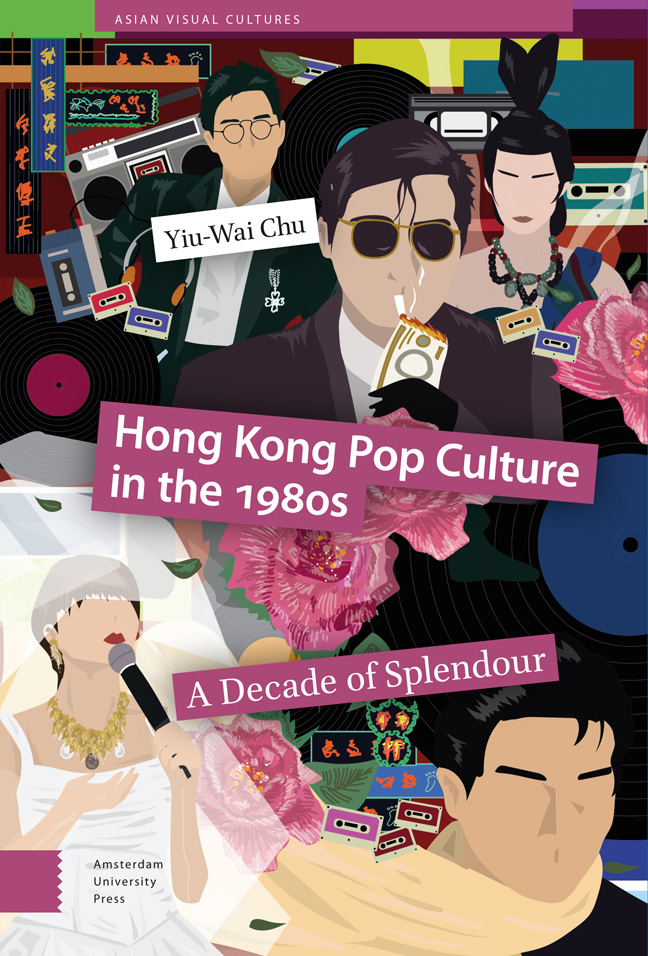Book contents
- Frontmatter
- Acknowledgments
- A Note on Romanization and Translation
- Contents
- Dedication
- Prologue: Horse Racing and Dancing as Usual
- Introduction
- 1 Televising Pop: New Stars and Renewed Sensibilities
- 2 Golden Days of the Silver Screen: Cinematic Imagination in a Not Yet Fallen City
- 3 The Sound of Chinese Cool: Do You See the City Sing?
- 4 The Importance of Being Chic: Fashion, Branding, and Multimedia Stardom
- 5 The Practice of Everynight Life: Disco as Another Kind of Dance
- 6 (Un)Covering Cosmopolitan Hybridity: Every Great City Deserves a City Magazine
- Epilogue: ‘We’ll Always Have Hong Kong’
- Select Bibliography
- Glossary
- Index
1 - Televising Pop: New Stars and Renewed Sensibilities
Published online by Cambridge University Press: 20 February 2024
- Frontmatter
- Acknowledgments
- A Note on Romanization and Translation
- Contents
- Dedication
- Prologue: Horse Racing and Dancing as Usual
- Introduction
- 1 Televising Pop: New Stars and Renewed Sensibilities
- 2 Golden Days of the Silver Screen: Cinematic Imagination in a Not Yet Fallen City
- 3 The Sound of Chinese Cool: Do You See the City Sing?
- 4 The Importance of Being Chic: Fashion, Branding, and Multimedia Stardom
- 5 The Practice of Everynight Life: Disco as Another Kind of Dance
- 6 (Un)Covering Cosmopolitan Hybridity: Every Great City Deserves a City Magazine
- Epilogue: ‘We’ll Always Have Hong Kong’
- Select Bibliography
- Glossary
- Index
Summary
The spread of television represented the birth of an art form which introduced a new sensibility into Hong Kong society.
Abstract
This chapter traces the development of Hong Kong's television industry in the 1980s. Free-to-air television provided a common platform for Hong Kong people to establish an imagined community in the 1970s, through which a new sensibility was introduced into society. Thanks to the challenge posed to the market leader Television Broadcasts Limited in the early 1980s, Hong Kong's television industry ushered in another, albeit short-lived, period of new sensibilities. Although there were more commercial calculations and constraints imposed on television production in this decade, Hong Kong's television industry continued to thrive as a star-producing machine, at least up till the latter part of the decade.
Keywords: TV New Wave, popular tastes, youth idols, star-making, Five Tigers
A New Kind of Collective Sensibility
While there have been studies that contested ‘the notion that television has a powerful identity-conferring ability’, Eric Kit-wai Ma has noted in his research on Hong Kong television that ‘in the light of the Hong Kong case, these studies can only reach the conclusion that television is not an effective agency for realizing cultural imperatives when imposed from above.’ Given the distinctive history of Hong Kong, those studies may not be totally applicable. As Ma further argued:
Due to the deficiency of the Hong Kong polity as a representative structure, and also because of other social factors, television culture plays a central role in identity formation in post-war Hong Kong. Before the mid-1980s, the newly emergent indigenous culture of Hong Kong was closely related to the development of the local television industry.
Although the history of Hong Kong television can be traced back to the 1950s, when Rediffusion Television (RTV) – operated by Rediffusion (Hong Kong) Limited, a subsidiary of Rediffusion in the UK – launched paytelevision service in 1957, Hong Kong audiences did not have free-to-air television until the Television Broadcasting Company (TVB) launched it in 1967. During its early years, TVB relied heavily on foreign-purchased dramas until the localization of its productions was gradually completed in the mid-1970s. Meanwhile, RTV turned free-to-air in April 1973, and Commercial Television (CTV), the third free-to-air television station in Hong Kong, was founded later in 1975. The Hong Kong television industry changed ‘from a monopoly to a tripartite dominion’.
- Type
- Chapter
- Information
- Hong Kong Pop Culture in the 1980sA Decade of Splendour, pp. 55 - 82Publisher: Amsterdam University PressPrint publication year: 2023



